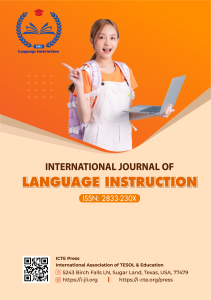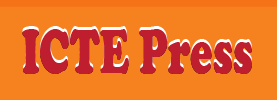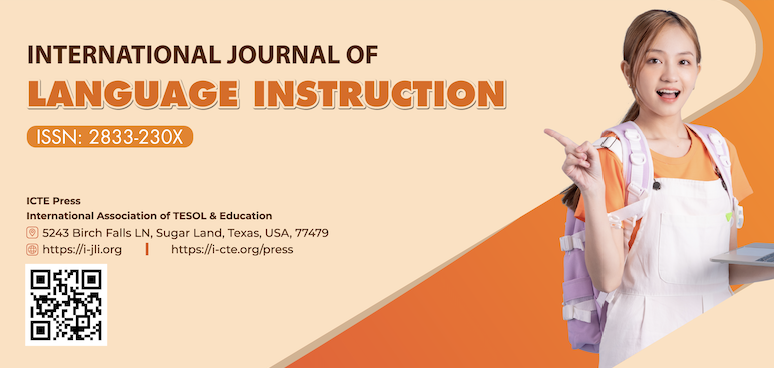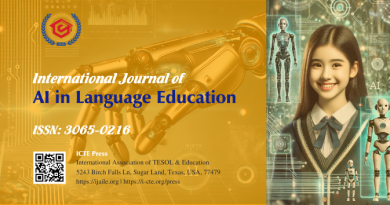Language Instruction: Vol. 3 No. 3 (2024)

Dear authors and colleagues,
It is my great pleasure to announce the publication of Vol. 3, No. 3, 2024 of the International Journal of Language Instruction (IJLI). This issue showcases an impressive array of research papers that contribute to the growing field of language instruction, offering valuable insights into various aspects of language learning and teaching. I would like to extend my sincere gratitude to the authors, editorial staff, and reviewers whose dedication and hard work have made this issue possible.
This volume features four significant studies:
Diep and Le (2024), from Van Lang University, analyzed coherence and cohesion in essays written by 80 junior English majors at their institution. Using a mixed-methods approach, they identified frequent lexical cohesion errors, particularly in repetition and misuse. The study highlights the need for targeted instruction to improve students’ writing coherence and cohesion.
Le (2024), from the University of Social Sciences and Humanities, Vietnam National University, HCM City, conducted a semantic analysis of the preposition towards in The Complete Sherlock Holmes from a cognitive linguistics perspective. Using quantitative methods, the study examined 175 instances, revealing both spatial and non-spatial meanings. The findings highlight the complexity of towards in expressing directional and abstract concepts.
Nguyen et al. (2024), from National Economics University, Hanoi, examined factors affecting learner autonomy in English-medium instruction (EMI) among 224 English-major students at three economics universities in Hanoi. Using quantitative methods, they found motivation, learning strategies, and teacher support were key influencers, while poor English proficiency hindered autonomy, underscoring the need for targeted interventions.
Do et al. (2024) examined EFL learners’ perceptions of technology self-efficacy in online language learning at a Vietnamese university, surveying 910 students from various departments, including Haiphong University, Hanoi University, and Hanoi University of Science and Technology. Using quantitative analysis, they found moderate self-efficacy overall, with male and engineering students showing higher confidence in technology use. The findings emphasize targeted support for improving learners’ self-efficacy.
As we move forward, we remain committed to fostering an inclusive and dynamic forum for language instruction research. We look forward to your continued support and engagement in the upcoming issues.
Thank you all for your dedication and contribution to the International Journal of Language Instruction.
Thanks God for everything!
With warm regards,
Associate Professor Dr. Pham Vu Phi Ho
Editor-in-chief
Faculty of Foreign Languages, Van Lang University, Vietnam
Full Issue
Full Issue (PDF)



